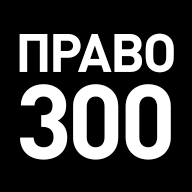The legal regulation of artificial intelligence (AI) in Russia and around the world as of 2023.
Artificial intelligence is by far the most debatable topic in the world nowadays. AI, rapidly developing and being increasingly integrated into various aspects of life, inevitably requires legal regulation. The most immediate and apparent areas of law needing updates and additions are human and civil rights, copyright, and intellectual property.
Legal issues and challenges
The development of AI brings about new legal issues that require attention and regulation. Here are just some of them:
Causing harm. How can we determine liability in a case where an autonomous system makes a mistake of causes harm? Who will be held laible for AI actions?
Privacy and data protection. How can we protect personal data when AI processes huge amounts of information? What measures need to be taken to prevent data abuse?
Ethical matters. How can we ensure ethical use fo AI? What restrictions need to be imposed to prevent unlawful use of AI?
International trends
There exist a number of international standards and initiatives aimed at AI regulation. The EU, for example, has developed Ethics Guidelines for Trustworthy AI that call for an equitable, transparent and safe use of AI. In 2021, UNESCO member states adopted the first international document that regulated ethical issues ivolved in the use of AI. Though Ethics Guidelines for Trustworthy AI are not mandatory, they lay down the general approach of the UN to AI regulation, offer solutions that could be used in national legislation. Among other things, the Guidelines underscore the importance of state certification of AI-based technologies, the AI environmental impact assessment, as well as related societal problems, creation of mechanisms and measures to prevent harm caused by the use of AI and compensate for it.
The U.S. Federal Trade Commission (FTC) has been actively proposing various legislative initiatives to regulate existing AI systems in recent years. One notable initiative is to amend trade rules to ensure transparency in the use of AI systems and protect consumers from discrimination and misuse of data. The most recent initiative, from 2023, aims to hold software developers accountable whose products are used by fraudsters to communicate with potential victims. Currently, these initiatives are more declarative, urging responsible AI use among users. This lays the groundwork for robust and long-term legislative regulation.
In Australia, two years ago, the Federal Court recognized an AI system named DABUS as an author, but this decision was overturned in 2022. The current practice holds that a machine, lacking legal capacity, cannot be recognized as an author. In April 2021, the Canadian Council of Academies on Artificial Intelligence (AIAC) released the "AI Code of Practice," which provides guidance on the ethical use of AI in science and design, based on principles of transparency and accountability.
Legal Regulation in Russia
Russia has also been involved in legal regulation of AI. In 2021, a set of measures of testing highly-automated vehicles was approved as self-driving AI-controlled taxis have been tested on Moscow streets. In recent years, the Ministry of Transport and the Ministry of Economic Development of Russia have been developing bills in accordance with the Federal Law 123-FZ of April 24, 2020, "On Conducting an Experiment to Establish Special Regulation for the Purpose of Creating Necessary Conditions for the Development and Implementation of Artificial Intelligence Technologies in the Russian Federation Subject – the Federal City of Moscow and Amending Articles 6 and 10 of the Federal Law 'On Personal Data'." This law is framework-oriented and primarily delegates normative function to the executive body. It defines artificial intelligence as a complex of technological solutions that mimic human cognitive functions (including self-learning and problem-solving without a pre-set algorithm) and achieve results in specific tasks that are at least comparable to the results of human intellectual activity.
Future Prospects
It's anticipated that AI legal regulation will continue to evolve. This process involves developing new laws, standards, and regulations, as well as updating existing ones to align with technological advancements. However, it's vital to balance innovation with regulation. Legal norms should accommodate the rapid pace of technology and adapt to new challenges. Regulating AI is a critical and complex task globally. Efficient mechanisms are essential to ensure AI's safe and ethical use, considering the interests of all involved parties.
